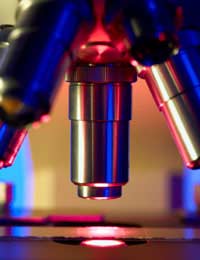DNA and Oxidative Damage

DNA is susceptible to many kinds of damage and one of these is oxidative damage. This type of damage can build up over time and overwhelm repair systems, leading to health problems and eventually, disease.
What is Oxidative DNA Damage?
Oxidative damage occurs in your cells from reactive oxygen species. The reactive oxygen species are a consequence of normal body processes such as metabolism. They are also a consequence of interactions with toxic sources such as cancer-promoting substances, certain drugs and radiation. DNA oxidative damage from reactive oxygen species is a common type of damage faced by cells and it can lead to many different mutations and problems in DNA. These range from lesions on DNA and breaks in DNA strands to faulty links and base gaps in sequences.Understanding How Oxidative DNA Damage Occurs
DNA oxidative damage and its effects can be extremely detrimental to the body. Our understanding of precisely how these effects occur is important to preventing the damage or looking at how to ease the rate at which oxidative reactions cause damage to the body. Another valid focus is to find ways to measure the level of damage before it overwhelms the body and leads to disease. At present, many different types of DNA lesions have been identified in the body's cells and under different conditions. This information has allowed researchers to understand just how DNA oxidative damage is implicated in a number of diseases. These diseases range from neurological disorders such as Alzheimer's disease to cancers and other diseases that have devastating consequences. In addition to its role in diseases, DNA oxidative damage has also been shown to play a part in the ageing process.Diseases Associated With Oxidative DNA Damage
Some of the specific diseases and conditions associated with DNA oxidative damage - some of which are highly serious and potentially fatal - include:- Arthritis
- Heart Disease
- Ageing
- Gastrointestinal disorders
- Multiple Sclerosis
- Cancer
- Neurological diseases
DNA Repair Systems and Oxidative DNA Damage
DNA repair systems work to buffer oxidative damage to DNA in cells, thereby helping to safeguard cells from damage. DNA repair enzymes regularly monitor damage to DNA to fix errors as they arise. They target a broad range of errors but if the errors are not repaired, cell death and the change from a healthy to a cancerous cell may then occur. It has become extremely important to understand how repair systems work to prevent and treat oxidative damage to DNA in cells now that we know the damage that can occur when the systems are left unchecked or malfunctioning. Current research is focusing on several aspects of oxidative damage mechanisms to DNA, with focuses on pharmaceutical developments to intervene with regards to DNA repair systems. Other focuses include finding ways to improve a cell's ability to withstand oxidative damage, thereby protecting its DNA. Still other applications involve finding ways to increase the activity of DNA repair genes, which essentially puts the genes in 'overtime' to handle oxidative damage that may inflict DNA.Reality of DNA Oxidative Damage
We are all exposed to sources of oxidative damage, which affects our cells and can lead to damage, poor health and disease if left unchecked. Fortunately, our DNA repair systems are equipped to handle much of the damage that occurs to DNA. Hopefully, we will find out more in terms of exactly how the damage occurs as well as discovering new links between specific diseases and DNA oxidative damage, which can ultimately lead to better prevention, new treatments and cures.Business Energy With a Difference
If you are looking for business energy or need advanced solutions like remote energy monitoring, new supplies, downgrading or upgrading capacity, have a no obligation chat with Purely Energy.
To find our more get in touch here. or call 0161 521 3400.
You might also like...
I am a 54 year old white female. When I was 16 years old again when I was 20 years old I took Accutane. I have DNA damage due to the Accutane and many health problems related to this damage! Including but not limited to Advanced aging, Interstitial cystitis with Hunners ulcers, Advanced degenerative disc disease in the neck and spine, real bad bad headaches constantly, peripheral neuropathy a rare form , fibromyalgia, liver disease, heart problems, nausea, chronic fatigue syndrome, insomnia, arthritis in the Spine and Neck, gastrointestinal problems, night blindness, bone density problems, schizophrenia and problems with the nervous system destruction where the nerves fire all at one time instead of independently and at the rate that they fire and constantly at times my body is unable to repair due to the nerves only able to repair themselves an eighth of an inch of year and at the rate with this happens my doctor says it's like the ends of a rope fraying. All because of Accutane! I would like to hear your comments on Accutane and the permanent destruction of DNA in a human body
Apache - 23-Jul-18 @ 4:02 AM







